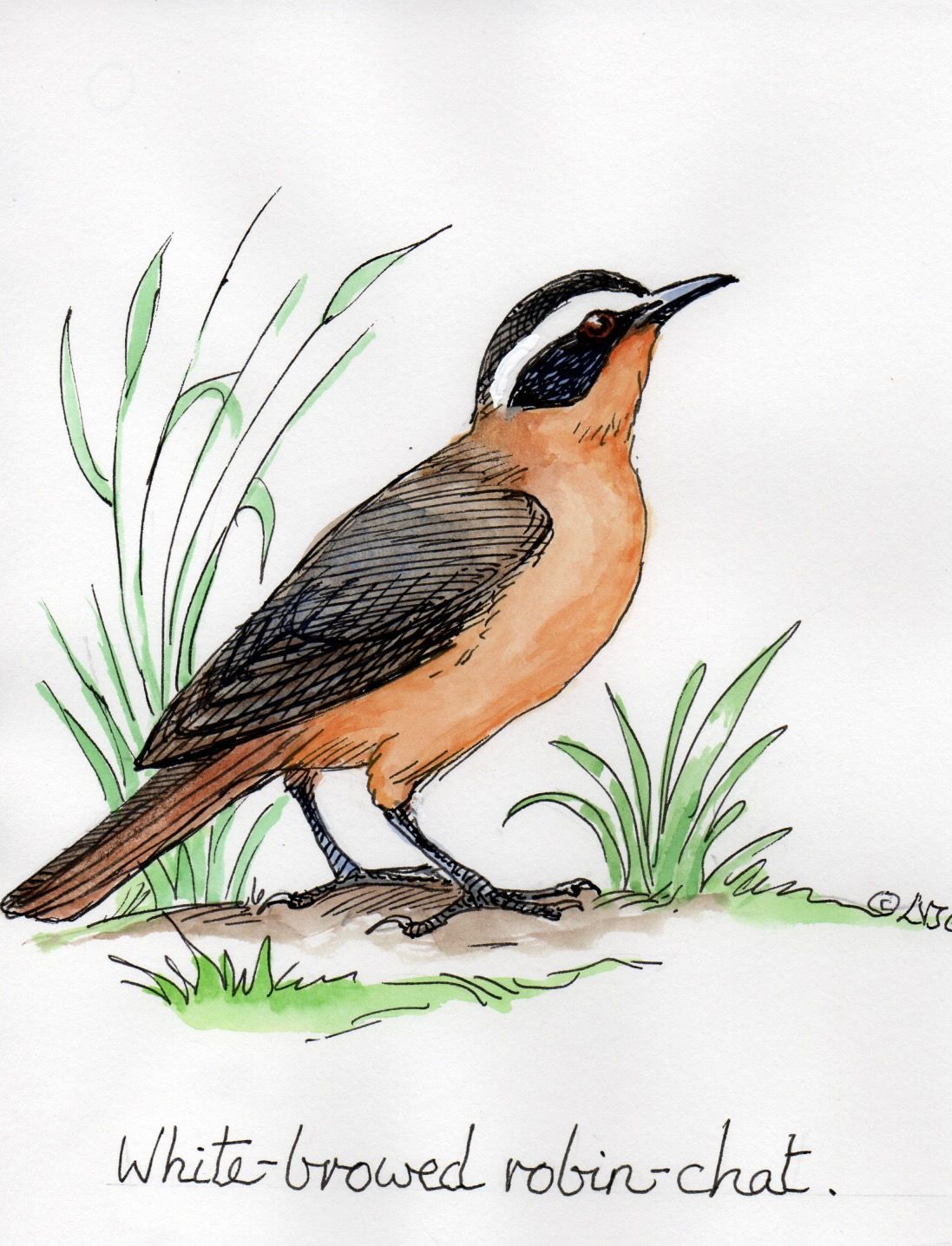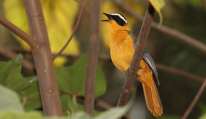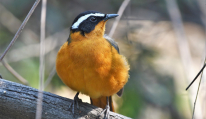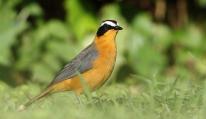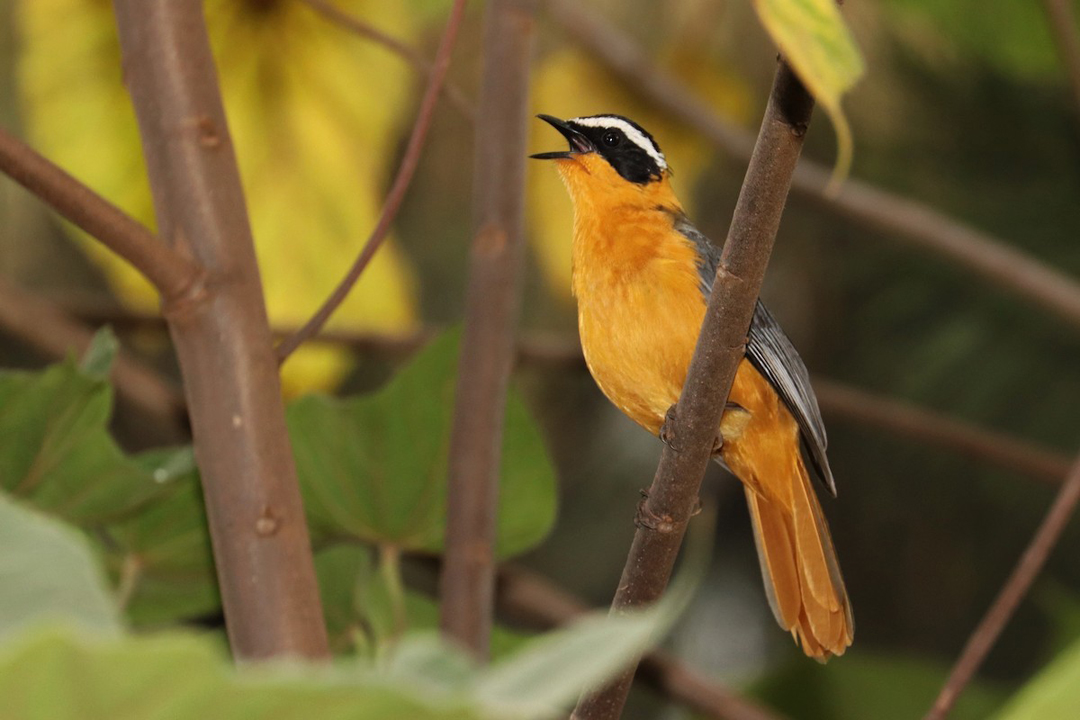Social Structure
Like other robin chats, these birds are usually seen alone or in pairs.
Communication
White-browed robin chats are noted for their songs, which usually begin with repeated high-pitched refrains that become lower and more rapid; they also mimic the calls of other birds and sing in duets.
Behavior
Active at dawn and dusk, white-browed robin chats are ground foragers and will also search for food in trees. They are territorial and sometimes attack intruders.
Conservation
Least concern
Diet
These birds mainly prey on insects such as ants and beetles, but will consume a range of other invertebrates as well, and sometimes eat fruit.
Breeding
Monogamous pairs generally nest in trees by using twigs and other vegetation to build an open cup. Females incubate the eggs for around two weeks and chicks fledge around two weeks after hatching, although they might continue to rely on parents for a few weeks afterwards.
Friends & Foes
Chicks are taken as prey by boomslangs and cats, and red-chested cuckoos practice brood parasitism.
Population in Kenya
White-browed robin chats are common in Kenya.
Range & Habitat
These birds are commonly found in parts of east Africa and other parts of south-central Africa.
They prefer evergreen trees at the edge of forests and other thickets, particularly near rivers, as well as acacia woodland and shoreline vegetation.

